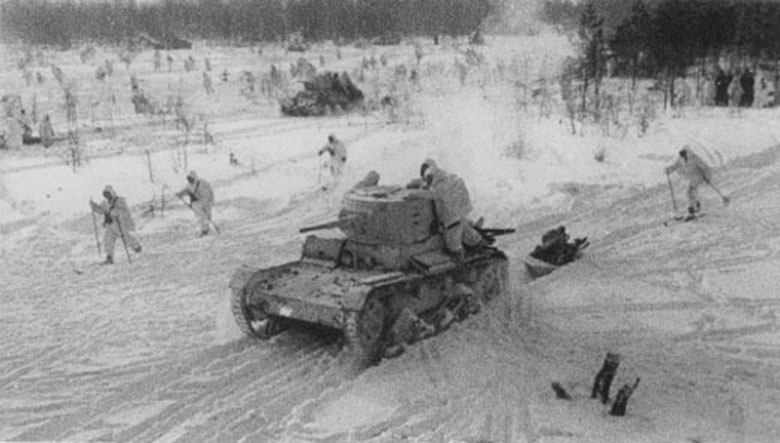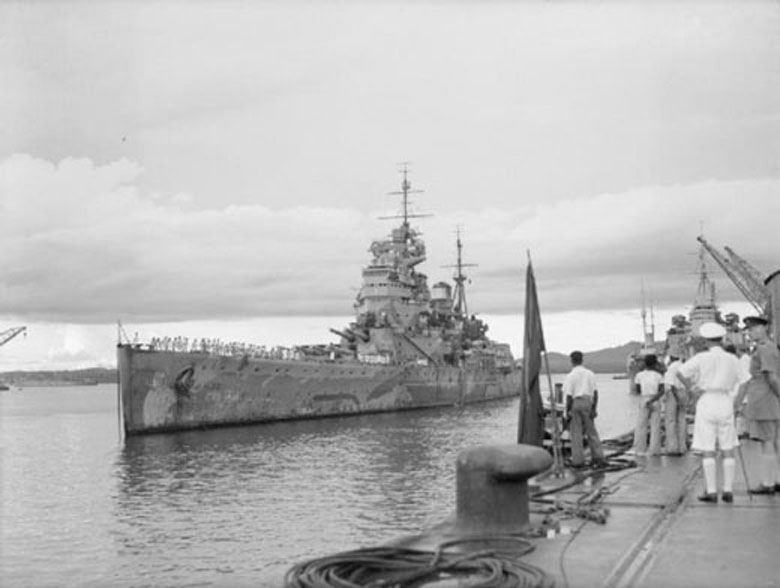Axis Diplomacy
- The Japanese ambassador in Berlin ask the Germans what their position would be if Japan initiated war against the Allies. This possibility was not covered in the Tripartite Pact. Hitler has never been advised of the planned attacks in the Pacific.
- The Netherlands is declared an enemy power by Japan and will be treated as if a state of war exists between the two nations.
Baltic Sea
The German steamer Edith Faulbaum (1318t) sinks on a mine off Warnemünde, Germany.
[Britain, Home Front
A new National Service Bill is passed by Parliament. Its provisions include compulsory direction and conscription for female labor.
[Eastern Front
In the northern sector the Finns take Hanko(sp), the base at the entrance to the Gulf of Finland which the Russians had taken the previous year.
In the central sector the Germans continue to pressure Moscow especially near Tula, south of the capital. The night brings bitter cold. This results in tanks that won't start, guns that won't fire and thousands of cases of frostbite.
Operation TYPHOON finally splutters to a halt. The 3rd and 4th Panzer Groups can go no farther, and the 4th Army withdraws back to the Nara. Zhukov prepares to unleash his offensive: 100,000 troops of the Kalinin Front, 558,000 troops of the Western Front and 60,000 troops of the Southwestern Front.[MORE]
Report That Red Army Reserves Were Totally Exhausted |
 |
| Despite such clear warning signs of an inability to compete in a protracted industrial war, solace was taken by Hitler and the OKW from a spectacularly erroneous Abwehr report of December 4, 1941, asserting that Red Army reserves were totally exhausted and therefore that the Soviets were incapable of launching any significant military operation. The first blow of an exquisitely timed Soviet counteroffensive that ended the BARBAROSSA campaign fell northwest of Moscow the very next day, with a thunderclap of shock on the German side. General Ivan S. Konev struck hard into Army Group Center with Kalinin Front. |
Mediterranean
The British submarine Trusty sinks the Italian steamer Eridano (3586t) off Argostoli, Greece.
[North Africa
Rommel launches one more attack against Tobruk. The 21st Panzer attacks Ed Duda, still held by Tobruk forces, and is repulsed. The 15th Panzer and the Ariete Divs make another attempt to get to the frontier.
Rommel finally concludes he cannot help his frontier garrisons, isolate Tobruk and still oppose Lt-Gen Willoughby Norrie's XXX Corps. He begins a withdrawal of all his fighting forces and all transport as possible from the area north of the Via Balbia and around Sidi Rezegh. Covered by the Ariete Div, they withdraw to a line running from the west of Ed Duda via El Adem to the area of Bir el Gubi.
[Occupied Poland
Gen Sikorski, Prime Minister of the Polish Government-in-Exile, broadcasts to the Polish people from Moscow.
[South China Sea
The Japanese 25th Army, the landing force bound for Malaya and Thailand, sets out from Hainan Island.
[ The British Reinforce Singapore |
 |
The British were aware of the growing Japanese threat in the Far East and had begun reinforcing its most important military base in the region, Singapore. The Naval base and garrison was protected by huge 15 inch guns capable of taking on any attacking naval force that came within their twenty-four mile range. During the last few months of 1941 thousands more troops were arriving from Britain, India and Australia. Singapore was very much still part of the British Empire and there were long-standing attitudes to how military affairs should be conducted. |